The Equalizer: An Action-Packed Thriller with Unexpected Depth
A gripping and surprisingly intriguing thriller where Denzel Washington gives Russian gangsters a run for their money.
Robert McCall (Denzel Washington) is a modest and solitary employee at a hardware store, who is friendly with his colleagues, works diligently, and reads classic novels in his spare time. There is nothing remarkable about him – but only to the uninitiated. Those privy to state secrets know that McCall is a former CIA agent who left the game after many years of secret operations. However, once a CIA agent, always a CIA agent. When a Russian prostitute, Alina (Chloë Grace Moretz), is beaten half to death by her pimp, the killer awakens in McCall, who knows the girl from midnight tea parties at the diner, and the man mercilessly deals with Alina’s tormentors. Upon learning of this, the Russian mafia sends its representative (Marton Csokas) to the city, who is ordered to severely punish anyone who has challenged his powerful organization.
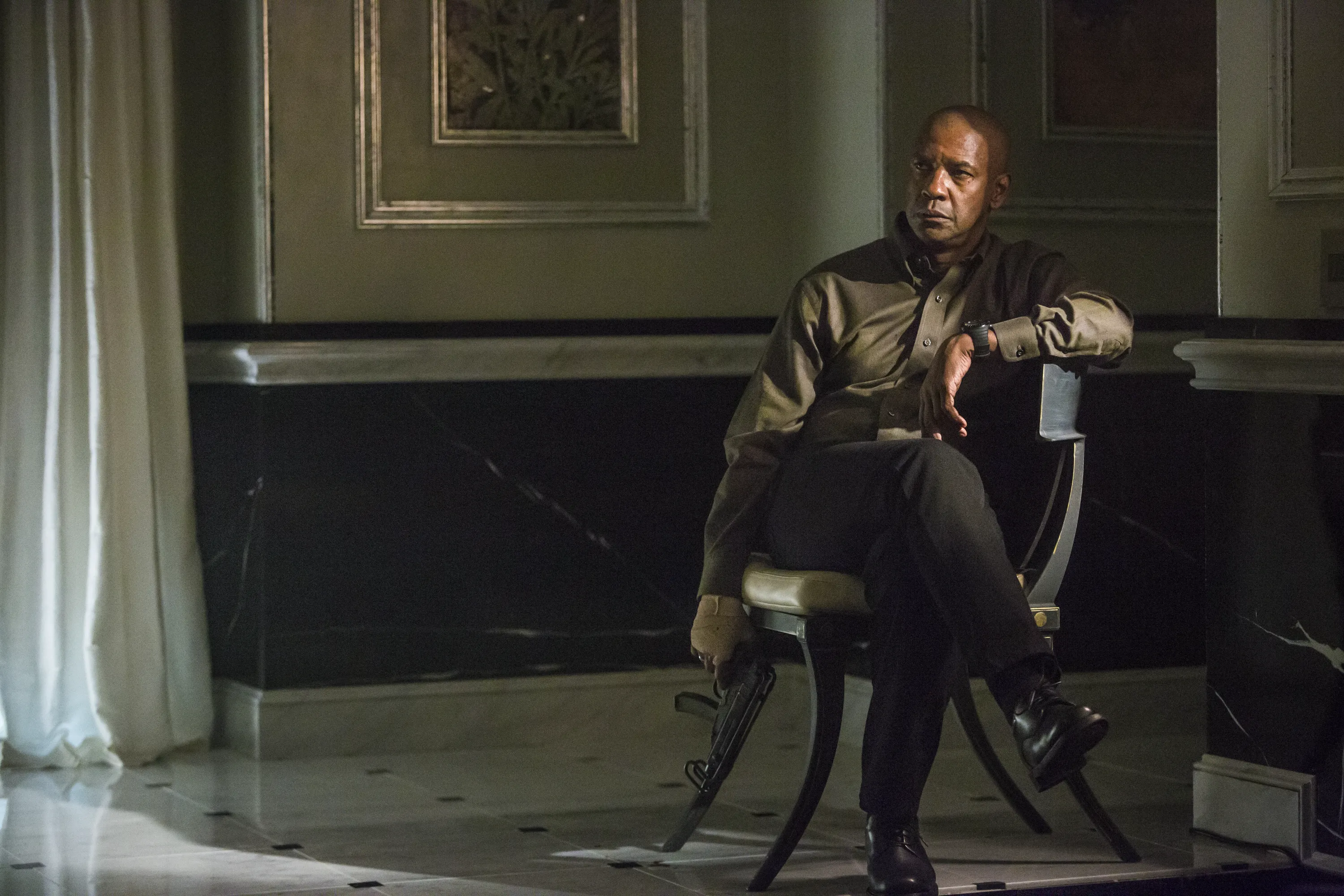
The film is based on the television series of the same name, which ran from 1985 to 1989. The show was so popular that people on the street approached the lead actor, Edward Woodward, and asked him for help – not as an actor, but as a “former secret agent.”
“The Equalizer” can be evaluated in two ways. One can ignore the hints scattered throughout the picture and say that this is a straightforward, almost 1980s-style, bloody thriller in which a valiant hero cleanses Boston of Russian mafiosi and corrupt American cops so that sweet girls like Alina and glorious guys like Ralfi, McCall’s clumsy colleague, can live in peace and prosper. However, “The Equalizer” is not as simple as “Commando.” Director Antoine Fuqua divided the two hours of screen time equally between tough action episodes and tense “conversational” scenes, in which McCall and his almost equally cunning and insightful Russian counterpart play a detective cat-and-mouse game (one tries to figure out who is killing his subordinates, and the other tries to cover his tracks so as not to turn from predator into prey).
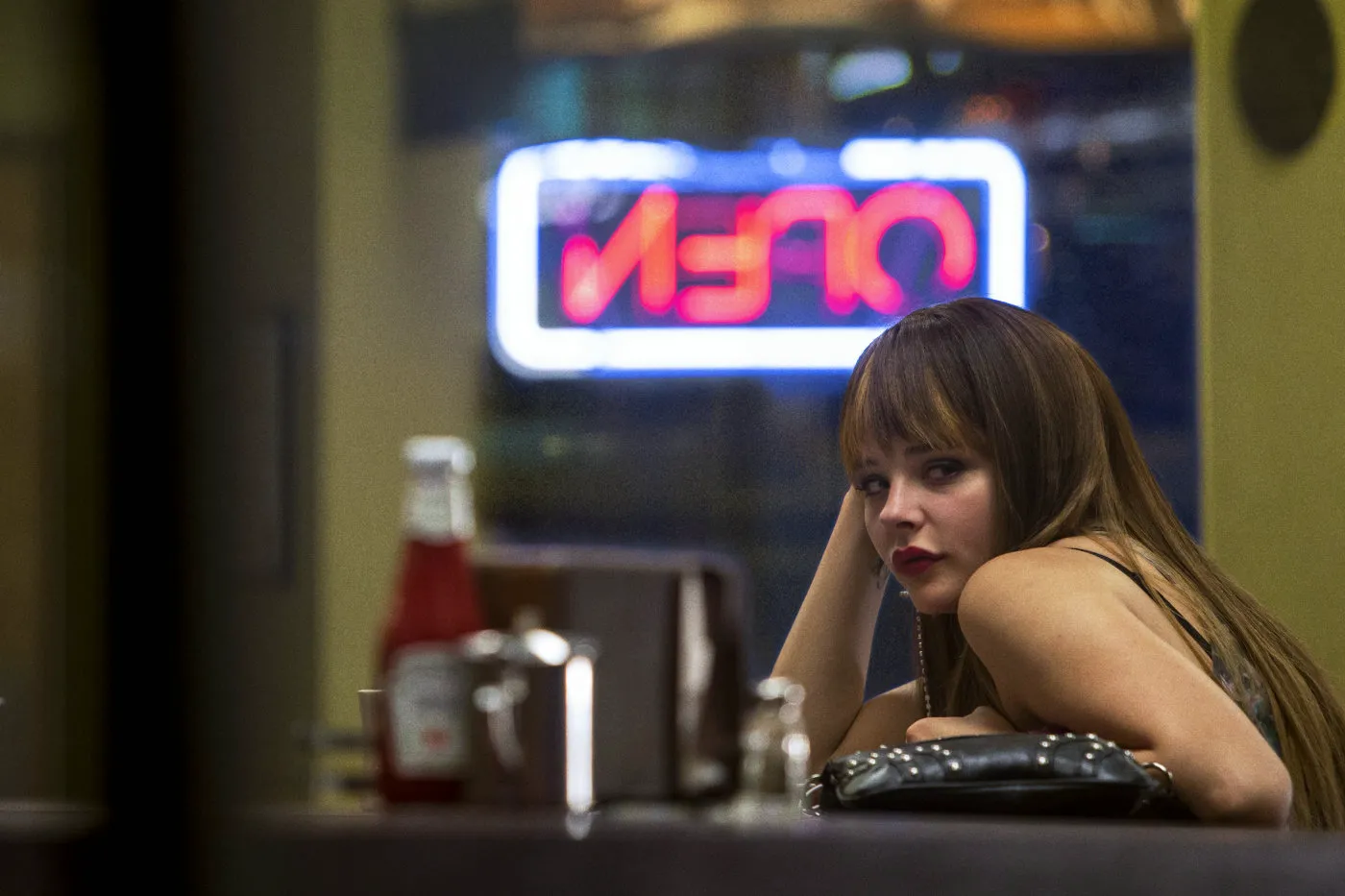
In the script, Alina was older than in the film, but the director made the heroine younger to give this role to Chloë Grace Moretz.
However, this is not the kind of movie that makes viewers doubt the outcome of events. As soon as the film drops the mask of a kind-hearted intellectual from McCall and shows the tattooed body of “Teddy” (Csokas’s character lives under an English pseudonym), it becomes clear that sooner or later they will converge in open combat. You can even predict where this will happen. Hint – the hero doesn’t just work in a hardware store!
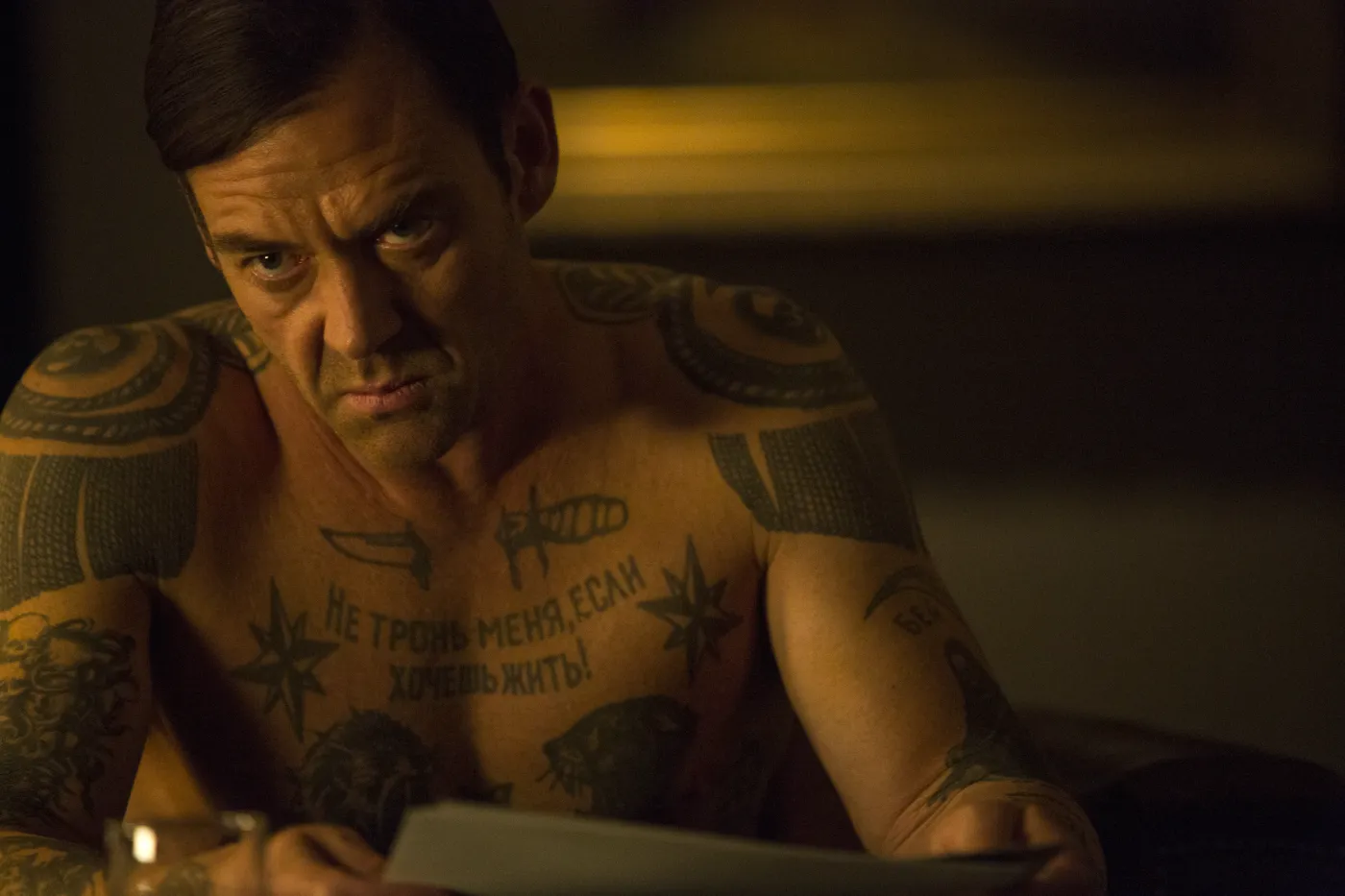
By the standards of the best thrillers, McCall is perhaps too cool and invulnerable, and in most scenes you don’t have to worry about him, but about his victims. But, like Schwarzenegger in “Commando,” Washington is charismatic enough that the public still roots for him, even when he and the bandits are in different mental categories. In addition, it is always nice to see a collected, prudent, inventive, and fearless person who protects the humiliated and insulted – from a minor Russian prostitute to an elderly Mexican cook. All of the above is enough for a fascinating (albeit slightly lengthy) film, and many Western critics felt that there was nothing else in “The Equalizer.” “Heroic hero versus villainous villains” – ordinary, traditional Hollywood cinema.
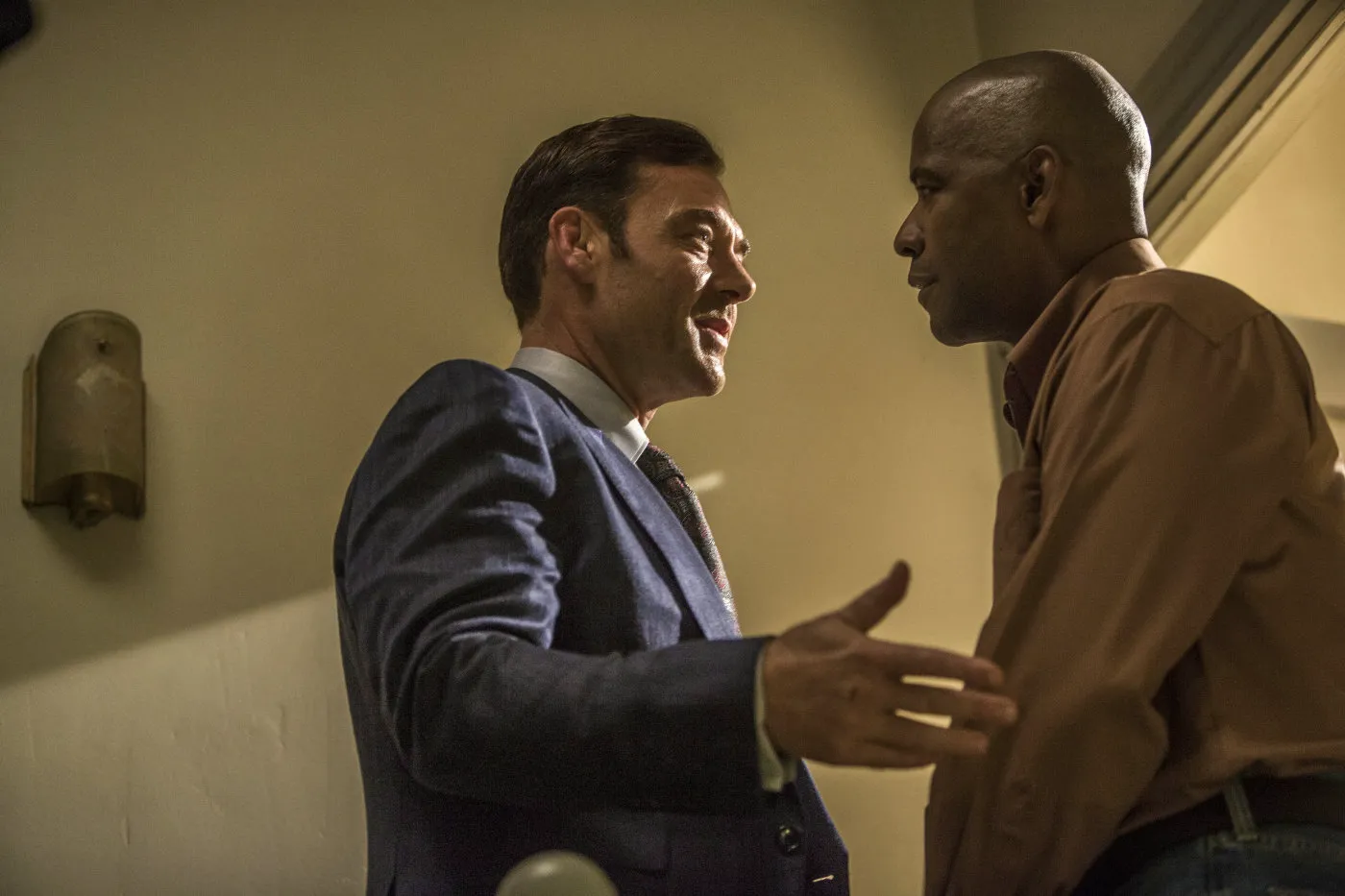
The Hidden Depths of “The Equalizer”
We, however, believe that the film has a second bottom, not particularly obvious, but showing itself to the attentive viewer. The key to it is the phrase on the poster: “What do you see when you look at me?” And indeed, what? Yes, McCall seems like an ordinary American hero. But why does he suffer from insomnia at the beginning of the film? And why, as soon as he starts killing again, does he fall asleep like a baby? Why does he insist that he promised his late wife to quit his past job – does a normal person need to make a promise to stop killing? A normal retired special forces officer, again like the hero of “Commando,” does not look back and rejoices that he no longer sheds blood. And finally, why does McCall rarely use ordinary weapons and try to kill strangely and sophisticatedly, using a corkscrew, barbed wire, or a short circuit? Is it only because diverse action looks better than monotonous shooting?
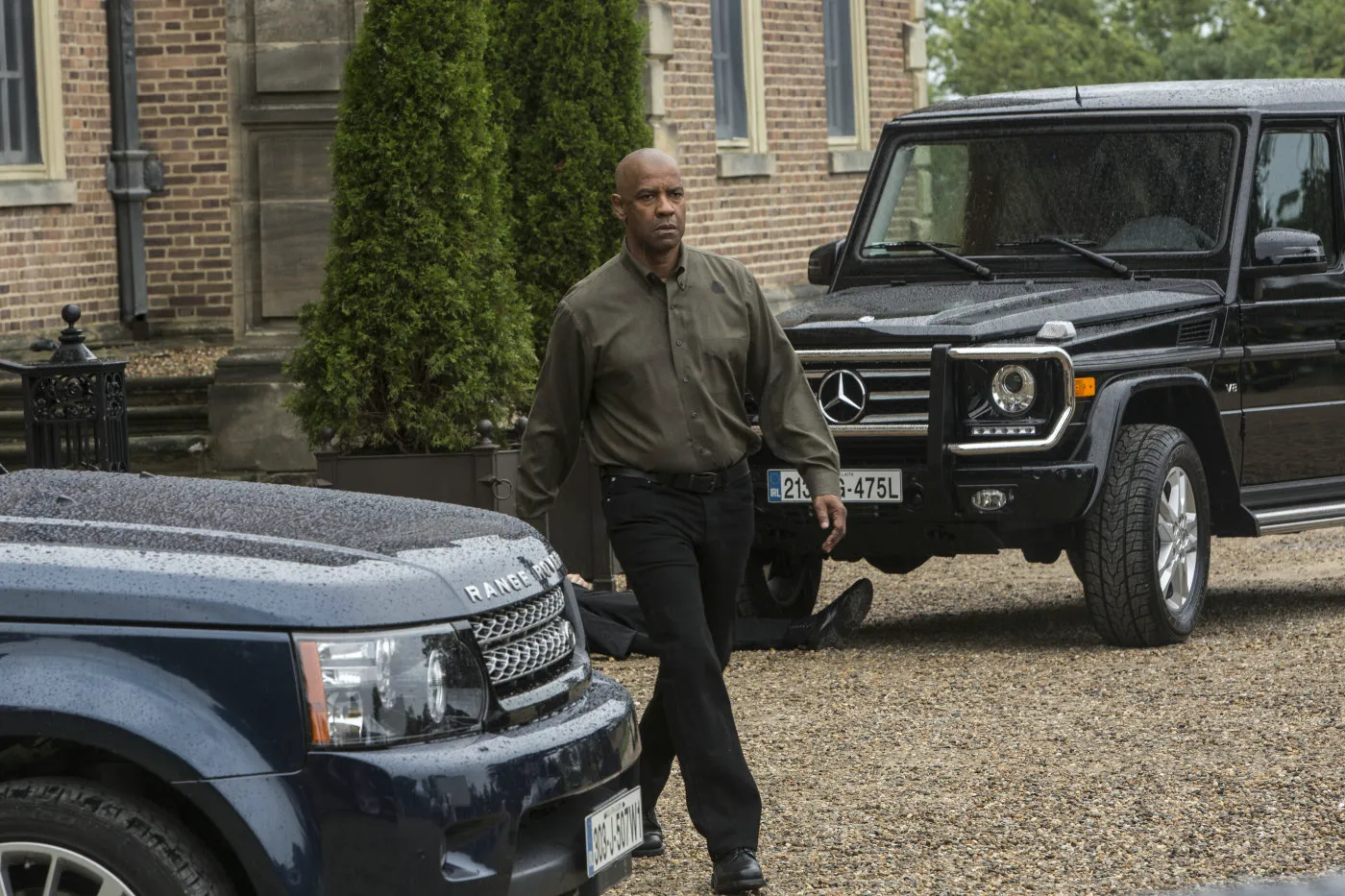
Is McCall a Dexter-like Character?
The answer, as we see it, can be found in the series “Dexter.” In our opinion, McCall, like the hero of the famous show, craves to kill. He suffers when he doesn’t shed blood, and enjoys when he sadistically punishes his victims and they die before his eyes. But he is too highly moral and disciplined to kill just anyone. Therefore, he becomes a “people’s avenger,” and therefore he previously served in the CIA – to kill with a clear conscience, in the name of high interests.
Is this the correct interpretation of “The Equalizer”? Not a fact – the film does not climb into the hero’s head and allows viewers to choose the interpretation that suits them. But the very possibility of a “non-heroic” understanding of the film makes the picture much more intriguing than ordinary films of this kind. If desired, “The Equalizer” can even be seen as a political allegory (who likes to kill under the banner of good and justice?). And few thrillers can boast of this. Especially those that at first glance seem entertaining, but flat.